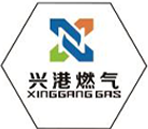
7 月 . 25, 2024 12:48
Back to list
Exploring the Importance and Functionality of Metering Systems in Modern Infrastructure and Industry
Understanding Metering Systems A Comprehensive Overview
Metering systems play a crucial role in the management of resources across various sectors, including utilities, telecommunications, and manufacturing. These systems are designed to measure and monitor the consumption or production of different types of resources, which provides vital data for operational efficiency, billing, and resource management. This article delves into the significance, functionality, types, and technological advancements of metering systems.
At their core, metering systems serve the fundamental purpose of quantifying consumption. In the utility sector, for instance, electric, water, and gas meters measure the amount of energy or resources consumed by residential and commercial users. This data is essential not only for accurate billing but also for assessing demand patterns, which can inform future infrastructure and capacity planning. In the telecommunications industry, metering systems track data usage, call time, and other variables, allowing providers to manage network resources efficiently and ensure optimal service delivery.
The functionality of metering systems has evolved significantly, particularly with the advent of smart technologies. Traditional metering systems often relied on manual readings, which were time-consuming and prone to human error. In contrast, smart meters enable real-time data collection and transmission, allowing for more accurate billing and immediate feedback to consumers about their usage. This innovation empowers users to manage their consumption better, promoting energy and resource conservation. Additionally, real-time monitoring can help utilities manage load more effectively, reducing the likelihood of outages and enhancing system reliability.
There are several types of metering systems, each tailored to specific applications and industries.
1. Analog Meters These are the traditional mechanical meters that use a dial system to display consumption. While they are still in use, their limitations in terms of accuracy and real-time data reporting have led to a decline in their popularity.
metering systems

2. Digital Meters Digital meters offer improved accuracy over analog counterparts and can provide instantaneous readings. They often have the capability to record and store data over time, which can be valuable for trend analysis.
3. Smart Meters These advanced devices incorporate communication technology that allows them to send and receive data over the internet or cellular networks. Smart meters give consumers real-time access to their usage data and can provide utilities with immediate insights into consumption patterns.
In recent years, the integration of IoT (Internet of Things) technology has revolutionized metering systems. IoT-enabled metering systems can connect various devices and share data seamlessly. This connectivity not only enhances the accuracy of measurements but also facilitates predictive maintenance, where patterns and anomalies in consumption can trigger alerts for potential issues before they escalate.
Moreover, metering systems are increasingly being integrated into broader smart city initiatives, where data from these systems can be synthesized with other urban data to improve city management, optimize resources, and enhance the quality of life for residents.
In conclusion, metering systems are indispensable in today's resource-driven world. They provide critical data that supports operational efficiency, accurate billing, and effective resource management across various industries. As technology continues to advance, the future of metering systems looks promising, with innovations that will undoubtedly enhance their capabilities and relevance in an ever-evolving landscape. The shift towards smarter, more connected systems signifies a pivotal move towards sustainability and better resource management, ultimately benefitting both consumers and providers alike.
Latest news
-
Unlocking The Quality Gas Pressure ReducersNewsNov.01,2024
-
The Role of Gas Pressure Reducing StationsNewsNov.01,2024
-
The Importance and Functionality of Safety Relief ValvesNewsNov.01,2024
-
The Essential Role of Safety Valves in Natural Gas ApplicationsNewsNov.01,2024
-
The Essential Role of Gas Pressure RegulatorsNewsNov.01,2024
-
Enhance Your Premium Gas FiltersNewsNov.01,2024

